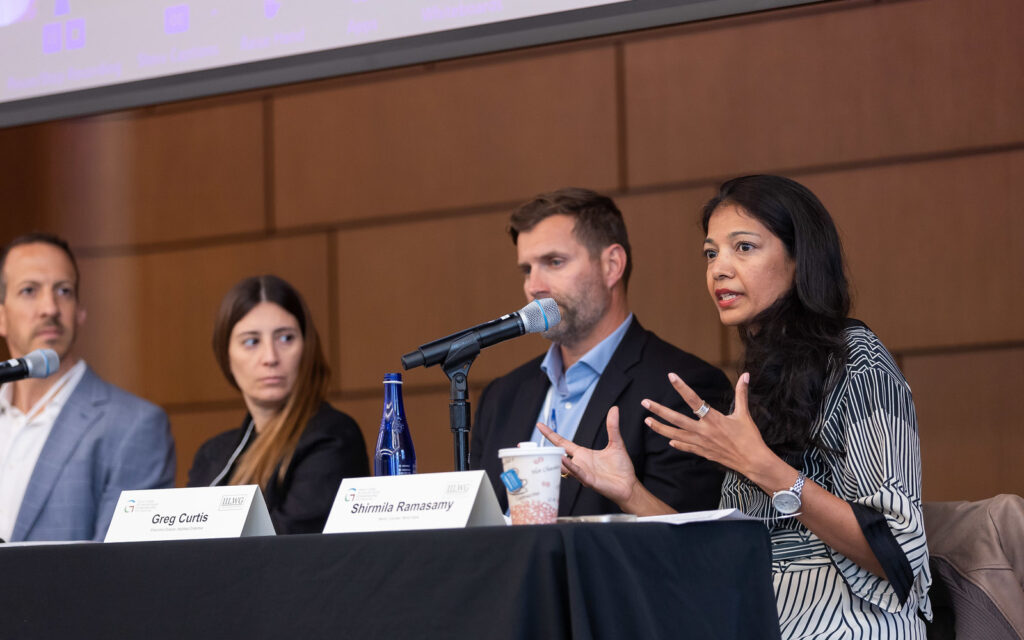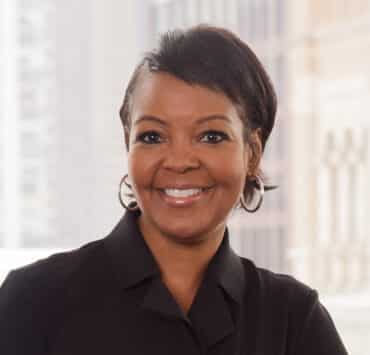|
Getting your Trinity Audio player ready...
|
With global economic uncertainty, geopolitical tensions, and multiple crises, the world’s poorest countries are sliding further away from the 2030 Sustainable Development Goals. Decades of development progress have been reversed. People are struggling with food insecurity, pandemic risks, and climate crises. Shirmila Ramasamy is working to change that trajectory.
Ramasamy is a lawyer specializing in development finance at the World Bank, the organization originally created to help reconstruct Europe and Japan in the wake of World War II. Once the 1947 Marshall Plan took over post-war reconstruction efforts in Europe, the World Bank shifted to funding infrastructure projects around the world in sectors such as power, irrigation, and transportation. Today, the World Bank provides financing to low- and middle-income nations to build schools, supply clean drinking water, improve infrastructure, generate power, and expand healthcare access.
Ramasamy oversees the design and implementation of innovative financing mechanisms which use market-based structured financed approaches to help the World Bank reach its development targets. “Traditional development finance can benefit from using the structures and technologies that are used in the private sector,” she says.
“Traditional development finance can benefit from using the structures and technologies that are used in the private sector.”
Shirmila Ramasamy
Ramasamy is part of the team behind the World Bank’s recent issuances of Outcome Bonds—a new financial instrument that channels private capital to projects while transferring project performance risk to capital markets investors, who are rewarded if the underlying projects are successful.
In 2022, the World Bank issued a $150 million “Rhino Bond” to fund wildlife conservation in two protected areas in South Africa. Earlier this year, the structure was replicated with a first-of-its-kind $100 million plastic waste reduction bond that mobilizes private capital to support two plastic collection and recycling projects in Ghana and Indonesia. A portion of the bond investors’ returns are linked to innovative plastic credits, representing the plastic waste collected and/or recycled.
Equitable access to vaccines for developing countries is another challenge Ramasamy tackles. She was one of the architects of the advance market commitment (AMC) for pneumococcal vaccines—a flexible tool that limits risks and market failures by incentivizing targeted investments to ensure vaccine availability. As the World Bank fought the global pandemic, it sent vaccines to seventy-eight countries while providing emergency support operations to another one hundred countries—deploying over $157 billion to help governments and the private sector in developing countries.
Ramasamy is also the lead lawyer for the International Development Association (IDA), the part of the World Bank that is the largest source of assistance for the world’s seventy-five poorest countries. The IDA complements the World Bank’s original lending arm, the International Bank for Reconstruction and Development (IBRD).

The repercussions of the COVID-19 pandemic continue to reverberate in IDA countries. Further, with debt distress, fuel and food price shocks, and the need to address climate change, there is increased demand for support from multilateral development banks like the World Bank. The World Bank’s President Ajay Banga recently called on IDA’s contributing members for “the largest of all time” replenishment of IDA’s resources to face these challenges.
What does it take to devise a strategy to support development targets in an era of increased volatility? Ramasamy says success as a finance lawyer requires one to be nimble. In her context, that means maintaining both the ability to think fast and the willingness to try something new. “In the face of change, there’s real opportunity to shape the change that is to come,” she says.
Thankfully, dealing with uncertainty is in Ramasamy’s DNA. The Malaysia-native grew up speaking multiple languages, such as Malay and Tamil, before leaving Kuala Lumpur to study in London and start her career at Linklaters, where she picked up a smattering of Mandarin along the way.
“In the face of change, there’s real opportunity to shape the change that is to come.”
Shirmila Ramasamy
The frequent moves gave Ramasamy exposure to various people, cultures, and experiences. “I didn’t want to simply be somewhere different; I wanted to thrive in each new location. I’ve learned to import the best of everything around me while holding true to my own identity, culture, and beliefs,” she says.
The approach keeps Ramasamy energized and ready to face whatever new challenges may arise. An anticipated $1.8 trillion a year is needed by 2030 for additional investments in climate action. The World Bank continues to deliver billions of dollars of financing annually to help its member countries address climate change, but the scale of financing required cannot be met solely by the international development finance system. Multilateral development banks must also mobilize and catalyze private capital. Others may see the scale of this challenge as an obstacle to a sustainable future—Ramasamy sees it as an opportunity.
“Shirmila is a rare talent, combining deep technical expertise across different financing products and formats with an ability to deconstruct the highly complex into simple substance and guide her business stakeholders to the solutions. I am in awe of her ability to get the best out of external counsel and help navigate international-level legal and political landscapes to achieve the goals of The World Bank.”
—Elaine Keats, Partner

